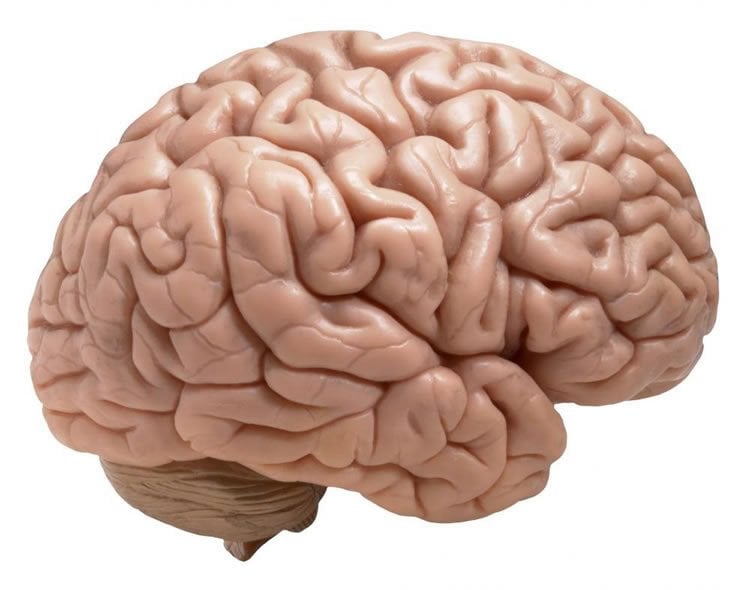A new study published in Physiological Genomics suggests that the brain shows signs of aging earlier than old age. The study found that the microglia cells—the immune cells of the brain—in middle-aged mice already showed altered activity seen in microglia from older mice.
Parkinson’s, Alzheimer’s and other aging-related neurodegenerative disorders are associated with excessive inflammation in the brain. Scientists believe that overactive microglia cells contribute to the excess inflammation. Normally, microglia protect the brain from infection and ensure the brain functions properly. Their immune response is tightly controlled. Microglia produce pro-inflammatory molecules to turn the inflammation process on, followed by anti-inflammatory molecules to turn inflammation off. With aging, microglial cells can overreact, and their immune activity can become less controlled—they turn inflammation on too quickly or turn it off too slowly. The prolonged or constant inflammation that results can damage the brain.
While it is known that microglia immune activity changes with aging, which response is affected first—the pro-inflammatory or the anti-inflammatory—or, more importantly, when microglial aging begins is not clear, says Jyoti Watters of the University of Wisconsin-Madison and lead investigator of the study. “We show in a mouse model that it may begin earlier than we thought,” Watters says.
The research team at the University of Wisconsin-Madison studied the microglia activity of young (two months old) and middle-aged (nine to 10 months old) mice. The researchers injected the mice with lipopolysaccharide, a molecule found in bacteria that strongly activates the immune system and causes inflammation. The mice were injected twice to assess the microglia’s ability to reset their immune activity and respond to another bout of inflammation.

The researchers found that middle-aged mice displayed exaggerated pro-inflammatory responses after the first injection. However, anti-inflammatory responses were normal. After the second injection, both pro-inflammatory and anti-inflammatory responses were normal. The data suggest that at middle age, the microglia already showed signs of an altered immune response. But not everything is impaired: The microglia of the middle-aged mice still responded normally to the second injection. “At this time, age-related alterations may only be beginning since other critical capacities have not begun to deteriorate yet,” according to Watters. “Of course, it is not known when aging-associated changes in microglial activities begin in the human brain, but these results in mice suggest that it may be earlier than we had previously appreciated,” Watters says.
Source: APS
Image Source: The image is in the public domain.
Original Research: Full open access research (PDF) for “Age-dependent differences in microglial responses to systemic inflammation are evident as early as middle age” by Maria Nikodemova, Alissa L. Small, Rebecca S. Kimyon, and Jyoti J. Watters in Physiological Genomics. Published online March 17 2016 doi:10.1152/physiolgenomics.00129.2015
Abstract
Age-dependent differences in microglial responses to systemic inflammation are evident as early as middle age
Whereas age increases microglial inflammatory activities and impairs their ability to effectively regulate their immune response, it is unclear at what age these exaggerated responses begin. We tested the hypotheses that augmented microglial responses to inflammatory challenge are present as early as middle-age, and that repeated stimulation of primed microglia in vivo would reveal microglial senescence. Microglial gene expression was investigated in a mouse model of repeated systemic inflammation induced by intraperitoneal injection of bacterial lipopolysaccharide (LPS). Following LPS, microglia from middle-aged mice (9-10 months) displayed larger increases in Tnfα, Il-6 and Il-1βgene expression compared to young adults (2 months). Similar results were observed in the spleens of middle-aged mice indicating that exaggeration of both central and peripheral immune responses are already evident at early middle-age. Interestingly, despite greater pro-inflammatory responses to the first LPS challenge in the aged mice, there were no age-dependent differences in either microglia or spleen following a subsequent LPS dose, suggesting that animals at this age retain the ability to effectively control their immune response following repeated challenge. The exacerbated microglial immune response to systemic inflammation at early middle-age suggests that the CNS may be vulnerable to age-dependent alterations earlier than previously appreciated.
“Age-dependent differences in microglial responses to systemic inflammation are evident as early as middle age” by Maria Nikodemova, Alissa L. Small, Rebecca S. Kimyon, and Jyoti J. Watters in Physiological Genomics. Published online March 17 2016 doi:10.1152/physiolgenomics.00129.2015







